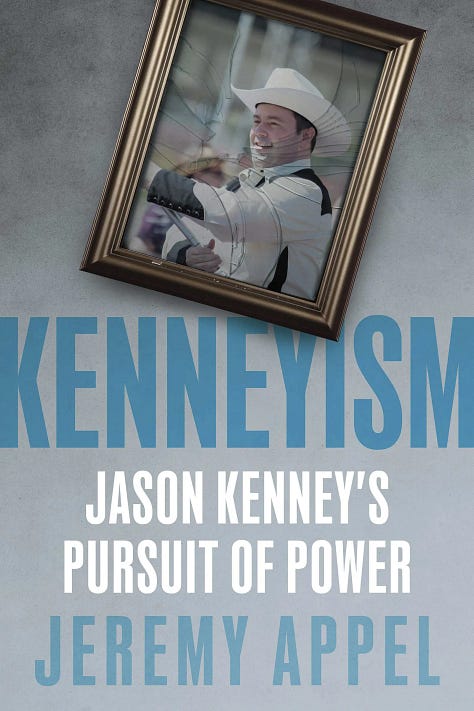Three Books About Politics and Power That You Should Read
Plus, an appeal to help Umar Zameer and his family recover financially after his acquittal.



Before I get into it this week, I want to share the GoFundMe page for Umar Zameer, who faces massive legal debt after he was found not guilty in the death of a police officer in 2021. The story is tragic all the way down and you can read about it here. As of publishing, the campaign has reached roughly $165,000 of its $200,000 goal. If you can contribute, please consider doing so. Either way, sharing the campaign is a great help, too.
Now to our scheduled business.
I’m getting ready to move (in this economy?!) very soon and as you might expect, it’s something worse than madness. If you’ve moved, and you probably have, you know it’s like working a second or maybe a third job. It’s a lot. Because you can’t stop working while you prepare (see above, this economy), especially if you’re self-employed like I am.
This week I’m bringing you a quick hit on three books I think you might enjoy and that I can guarantee will impart equal parts entertainment and knowledge. And maybe outrage, too. But the good kind. The productive kind.
Each of these books is about power. The power of capital, the power of oligopoly, the power of ideology. We don’t talk about power enough and our politics and policies are worse off because of it — and, thus, we are worse off. The more we talk about power, the more we understand it, locate it, and can talk about shifting it from the few to the many. So, here’s to more talk about power and to growing that to-be-read pile while we’re at it.
Kenneyism: Jason Kenney’s Pursuit of Power by Jeremy Appel
It’s driving me bonkers that this book isn’t getting more media coverage. Alberta-based journalist Jeremy Appel has written a detailed and insicive account of Harper-era Cabinet minister and former Alberta premier Jason Kenney. I reviewed it recently for the Tyee.
The book isn’t a traditional political biography. Instead, it builds on the concept of Kenneyism (coined by John Carlaw), a mix of neoliberal and neoconservative committments grounded in a desire for order and preserving social hierarchy. Appel assesses the effects Kenney’s time in politics through this lens. For the most part, Appel skips unecessary biographical detail and instead gets to the heart of the matter: what Kenney believes, what he wants, and what that has meant for us. It is the book on Kenney and, to boot, it’s a great look at the history and state of the right in Canada.
Rogers v. Rogers: The Battle for Control of Canada's Telecom Empire by Alexandra Posadzki
If you live in Canada, you’ve probably been hosed by a telecom company. You’ve probably overpaid for broadband or cell service because this country is three companies in a trenchcoat and they can do pretty much whatever they way. You’re probably overpaying now, in fact.
Rogers v. Rogers is a thorough account of the family and business drama and melodrama behind one of those companies (I’ll let you guess which one). It focuses on the struggle for control of Rogers after its patriach, Ted Rogers, died. It’s utterly Shakesperian stuff, reading at times like fiction, except it’s factual — deeply and expertly reported — all the way down. Posadski has managed to write a story that’s part business, part politics, and part tragedy of a sort, and it all hangs together.
This is a kind of beach reach for people who don’t go to the beach, which I mean as a compliment and which very much applies to me. For more, check out my review.
Technofeudalism: What Killed Capitalism by Yanis Varoufakis
Do we still live under capitalism? Former Greek finance minister Yanis Varoufakis thinks not. More precisely, he thinks capitalism has been supplanted by “something worse,” a “cloudalist” feudal order driven by powerful, anti-competitive rentiers. It’s a kind of Silicon Serfdom. It's…not ideal.
I spoke with Varoufakis back in February about the book, which is persuasive and accessible, which isn’t always the case with these reads. So that’s quite nice.
The book’s thesis is controversial, not so much because anyone is seriously suggesting we aren’t facing the deleterious social, political, and economic effects of tech giants who dominate so much of our lives, but rather because critics of the book suggest that’s merely capitalism at work. But Varoufakis’s nuanced argument is worth chewing on, because whatever you call our present dystopia, it’s not business as usual.


Thanks for the link to the fund for Mr. Zameer. So disgusted by what he was put through, so it's nice to be able to contribute to lessening the financial burden, even just a little. Appreciate the great book recommendations too. Looking forward to Technofeudalism given the controversy you mention - capitalism by any other name...
Thanks for the nudge and the link to support Mr Zameer. I donated and shared…. And now on to the books. Roger’s vs Roger’s should be a movie for sure